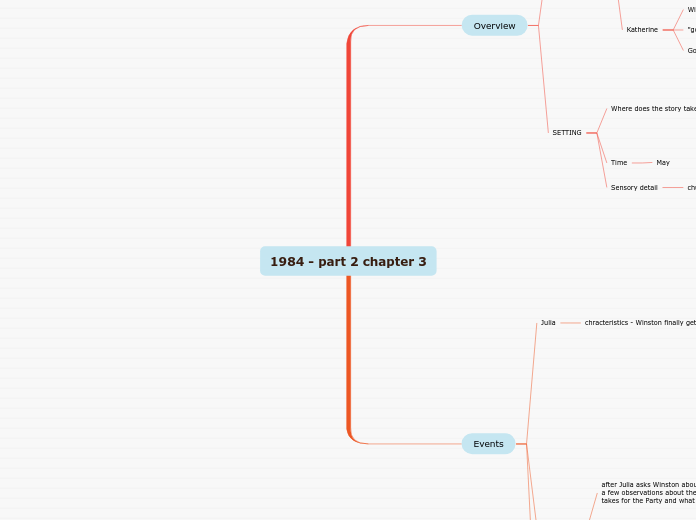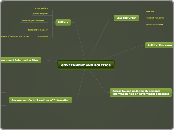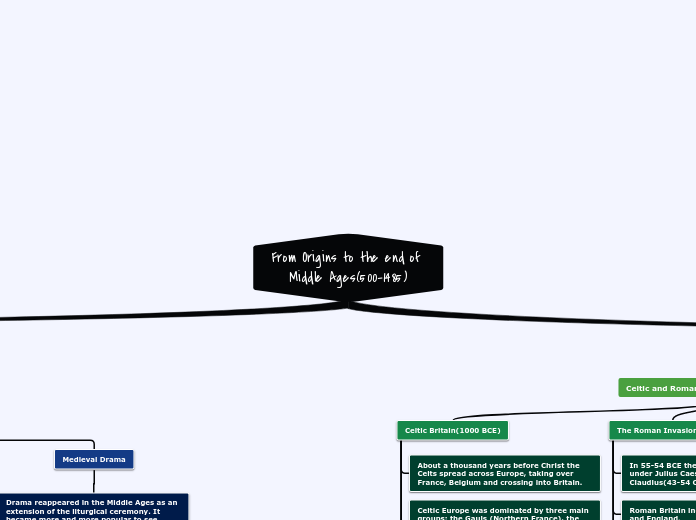1984 - part 2 chapter 3
To name your story, you have to think about the overall message and what you want your audience to understand from the story. Also, make it relevant and easy to remember.
Events
The middle of the story is where you add layers of complications that will lead to the end. Reveal more about the character's journey. Did their personality go through changes? How did they overcome the challenges? And as you build up the story’s central conflict, make it more personal to that character. Also, from the middle act, you have to lead into the final act.
"'We are dead' - he said."
the people are bodies, always available for the Party to use the way they want to, making changes, killing, manipulating
the only reason they are alive is the Party, which is also the only reason they are killed - they serve the Party and its identity
Your character(s) need(s) motivation in order to solve the challenge(s).
present Winston hated her
Secondary characters also might have motivs beacuse of which they may cross path with main character or which might trigger them to help the main character.
he had an opportunite to kill her, but didn't and wasn't completely sure if he would
he believes killing her wouldn't make much of a difference, because it wouldn't matter, the Party would always be the one with control and wining
he believed if she had paid attencion to him she could have noticed his orthodoxy opinions and would have denounced him
after Julia asks Winston about his ex-wife they make a few observations about the role a relationship takes for the Party and what they expect
Why does your character need to confront this challenge? What does he/she expect to accomplish by solving it?
See a few examples:
- will marry in 3 days
- can fix the mistakes of the past
parenthood
the idea of a family could be abolished, but it's concept couls be changed
"The family had become in effect an extension of the Thought Police"
the Party has control over everyone, including the ones that in a normal context should always be by your side.
"The sex impulse was dangerous for the Party"
they portrait the physical attraction as an act against the government
a relationship that's exciting takes your attention from the Party, you are no longer excited about the government events because you have something else that can make you happy/excited
you are no longer exclusive to the Party
Each story has a main character and that character usually needs to solve a problem or challenge. The character's challenge is the one that creates tension throughout the story.
chracteristics - Winston finally gets to know her
In most stories, there are 3 challenges. The number 3 is a mystical number symbolizing completeness. Try to come up with interesting challenges with which your character needs to struggle.
See a few examples below:
- turns into a werewolf at night
- is sent back in time
"Life as she saw it was quite simple. You wanted a good time; 'they', meaning the Party, wanted to stop you having it; you broke the rules as best you could. She seemed to think it just as natural as 'they' should want to rob you of your pleasures as that you should want to avoid being caught."
"She hated the Party (...) but she made no general criticism of it"
Winston was different, he cared and he kept record, he tried not to forget and he trusted himself - she is selfcentered, he cares for the future
Had her first affair when she was 16, with a Party Member that was 60.
he commited suicide to avoid getting arrasted - that was good for her, because she thought he was weak and would give her up
had been troop-leader in the Spies, then Youth League, than she joined the Anti-Sex League
She didn't care much for reading, was inveted to work in the Pornosec and worked there for a year
"The teory was that men, whose sex instincts were less controllable than those of women, were in greater danger of being corrupted by the filfh they handled."
26 years old, lives in a hostel with other 30 girls, worked on the novel-writing in the Fiction Department.
Overview
In the beginning of the story (or the exposition), you will need to introduce the setting and characters. You might also want to introduce the main conflict. This part of the story is important because it gives the reader necessary background information and maybe even a first insight into a character’s personality.
SETTING
The setting (time & place) of a story can change throughout the plot.
Sensory detail
Sensory details include sight, sound, touch, smell, and taste. These details are important because they create depth in your setting.
See a few examples below:
- the smell of fresh bread
- the scent of freshly cut grass
- rain falling onto the windshield etc.
church
"It was a blazing afternoon. The air in the little square chamber above the bells was hot and stagnant, and smelt overpoweringly of pigeon-dung."
Time
The time of the story can also change. It can describe the event of a single day or can include an entire year's plot. Anyway, don't forget to mention it.
May
Where does the story takes place?
Your story can take place wherever your imagination will take you to.
For example: in an elevator, in an enchanted forest, etc. Don't forget to give details of the environment each time the setting changes, otherwise, the story can be confusing. Also, mention the seasons as each of them has unique weather and events.
abandond church
bombed a few years back and left; they have privacy and can talk without fearing others (but still eventually looking out to see if there is someone coming)
They see each other at a market to plan where they can meet
a crowded place where it's easier to talk
It starts with them leaving the clearing and planning on their next meeting
CHARACTERS
Characters are essential to a good story. Usually, the protagonist(s) is/are the most affected by the plot. Introduce a character by focusing on their actions, interests, and occupation, as the physical appearance doesn't make a difference in most cases.
Katherine
Goal: serve the Party and be a good member
"goodthinkful"
"naturally orthodox, incapable of thinking a bad thought"
Winston's wife
they were still married, but not together
Julia
Goal: rebell against the government, doesn't matter if it is in a silent way
Female, intelligent, planner, experient, rebellious
Secundary character; love interest
Winton
Type in the name of your character.
He hates the government, the Party and the Big Brother; projects his hate on women, but is falling in love with Julia.
Add other qualities/attributes of the character.
Goal: rebell against the government
What is your character's main goal?
fight Evilfind lovedefeat his/her enemyrule the worldmake friendstime travelmake an awesome discoveryOther
Male, intelligent, thoughful person, rebellious, curious, hopeful, fearful
Which traits best describe the character's personality? Choose more if necessary:
introvertedloyalkindindependentquick-thinkingadventuresomeidealisticsweet-naturedcalmrisk-takercreativewittystrictfussyweirdclumsyharshaggressivecarelessclingingcowardlycrueldeceitfulimpulsiveOther
Main character
Choose the type of your chacter:
Protagonist (main character)Antagonist (main character's opponent)Flat (stereotypical character)Round (his/ her personality develops throughout the story)Static (doesn't evolve as a person throughout the story)Dynamic (dramatical change in personality)Confidant (the main character trusts him/ her)Foil (contrasting character who enhances the personality of another character)Other










